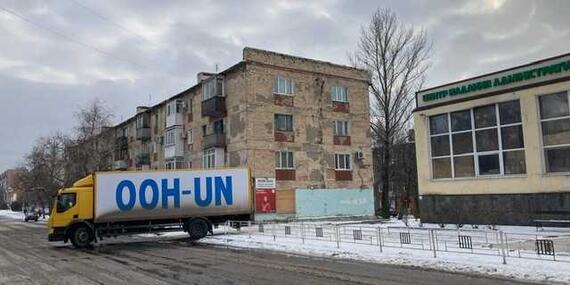Today's top news: Ukraine, Afghanistan

Ukraine
Fierce fighting continues in the eastern Donetsk region, with civilians being killed and injured on both sides of the front line.
Over the last 24 hours, the front-line city of Bakhmut reportedly came under intensive shelling again. Children were among those killed and injured.
Thousands of people who remain in the city experience constant shelling, forcing them to spend hours in shelters, while access to basic services, including health care, is extremely limited.
Civilians were also reportedly killed and injured in the areas of the Donetsk region under the temporary military control of the Russian Federation. Civilians have also been killed, and key civilian infrastructure, including dozens of homes, has reportedly also been damaged in the east, north and south of Ukraine over the past 24 hours.
We continue to support the most affected communities near the front line. Yesterday, a humanitarian inter-agency convoy delivered food, water, medicine, emergency shelter materials, hygiene items, a generator and other supplies for winter to the town of Toretsk, which is some 10 km from the front line in the Donetsk region. The convoy also delivered included trauma and emergency surgery kit supplies.
Approximately 15,000 of the 75,000 residents who lived there before the war started are still in that town and nearby communities. They depend on humanitarian assistance.
The supplies were provided by the International Organization for Migration, UNICEF, the UN Refugee Agency, the World Food Programme and the World Health Organization.
Afghanistan
Under-Secretary-General for Humanitarian Affairs Martin Griffiths briefed Member States this morning on the humanitarian situation in Afghanistan, and his recent visit to the country as part of an Inter-Agency Standing Committee mission. Mr. Griffiths said they told the de facto authorities that an edict on 24 December barring women from working for national and international NGOs is doing no favours for the people of Afghanistan.
Women are an essential, central component of the humanitarian operation in Afghanistan, Mr. Griffiths said, noting that if the ban is not revoked, more exceptions are needed to allow female aid workers to resume their activities. He noted that we have received exceptions in the Health and Education sectors which have enabled activities to restart.
He underscored that humanitarian agencies will continue to work and be present in Afghanistan unless there is a blanket opposition to women working. The humanitarian community does not go on strike but seeks ways to work in a principled manner.
This year's Humanitarian Response Plan for Afghanistan seeks $4.6 billion to help 28 million people in need, with some 6 million close to famine.
